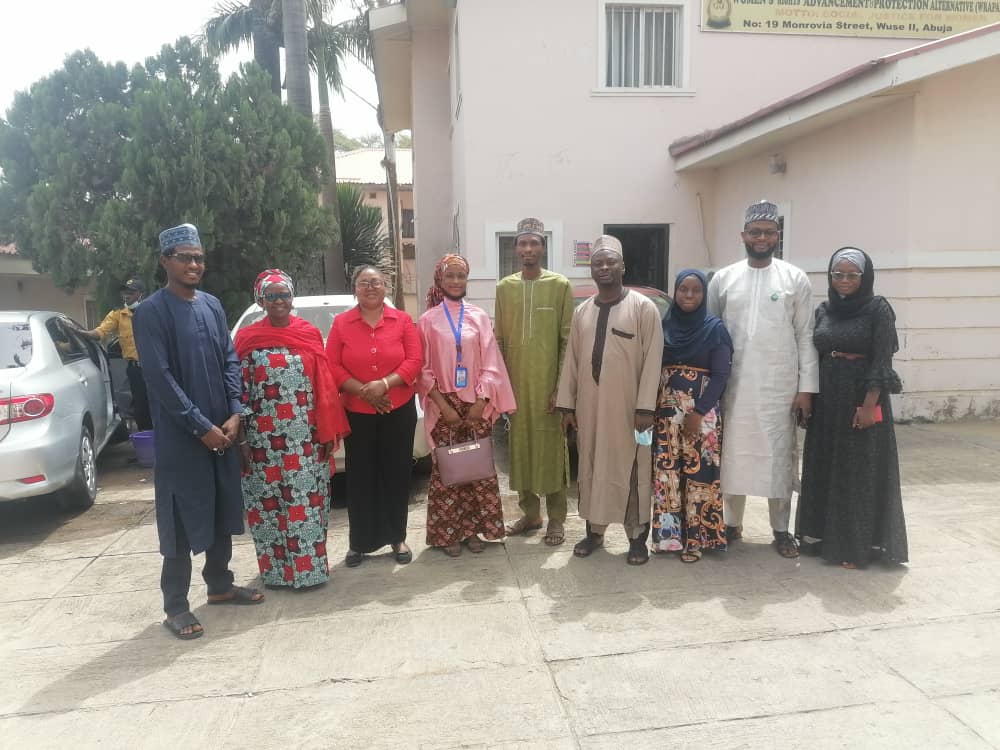
COURTESY VISIT REPORT TO WOMEN RIGHTS ADVANCEMENTS & PROTECTION ALTERNATIVE
Centre for Information Technology and Development (CITAD) is a capacity-building civil Society organization whose activities cover research, advocacy, training, and publicity in all areas of ICT for development and good governance. It’s in the light of the above that the organisation paid a courtesy visit to the Women’s Rights Advancement & Protection Alternative (WRAPA). WRAPA Being an organisation committed to increasing women’s access to justice, by actualising women’s legal rights in public and private spaces, CITAD deem it necessary to pay a courtesy visit for familiarity, building relationships and possible collaboration for the betterment of our communities.
The courtesy visit which took place on Monday 7th February 2022 at the WRAPA headquarter office Abuja, had in attendance CITAD programme officer Yesmin Salako, technical officer Muhammad Yahya Bello and Usman Isah, Programme manager WRAPA Umma Ribi, Yemisi WRAPA project coordinator, WRAPA finance officer Shafiu and Mal. Muhammad. Yesmin shared CITAD activities which has been an ongoing activity in the FCT, which includes ICT training in the FCT rural communities ICT centre, GBV and child abuse sensitization, peer education training, community networks projects aimed at breaking the digital divide, social audit & FOI training for FCT rural communities activists, promotion of transparency and accountability in the governance and electoral process through engaging community youth in monitoring of electoral processes in their surroundings. WRAPA representatives were pleased to be informed on the in depth work CITAD is doing especially at the grass root level ensuring no one is left behind irrespective of gender, tribe, religion, class or age. WRAPA also expressed how it had engaged in several activities with CITAD in the past to include the summer digital institute, Inspiring Leadership or mentorship programmes (ILERIS) among others.
To this end, WRAPA showed the need to rekindle the partnership between CITAD and WRAPA for effective and a better impact in the societies where we work. WRAPA therefore requested for CITAD to send a portfolio of all our activities, so they could figure out where to key in.

